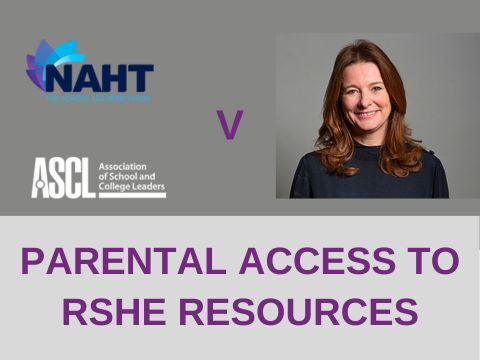

Statutory Relationships and Sex Education: Exploring the moral complexities
In recent months Western culture has experienced a renewed crisis in how we relate to each other sexually. The #MeToo Campaign has burst open a tide of anger and long-held resentment about how individuals have experienced the sexual responses and behaviours of others. But in a Radio Times article, Mariella Frostrup asked if we are losing our sense of proportion as we throw every act of perceived sexism into the #MeToo basket.
It raises the question: By what measure do we judge behaviours to be appropriate or inappropriate? Is there an objective standard by which behaviour amounts to sexual harassment and assault? Or is my subjective judgment sufficient? Is it enough for me to feel sexually violated?
Perhaps we can agree with Harvey Weinstein’s lawyer that offensive behaviour does not equate with criminal behaviour, but where do we start in tackling offensive behaviour? And whose measure of offensive do we apply?
In a BBC report last year, a 24 year-old secondary school teacher spoke of her shock at the degrading language used by boys to discuss sex and sexual acts. For their part, girls were not taught to respect their bodies and didn’t comprehend the notion that they may be being used. She referred to ‘an infected generation that no longer sees the gravitas of sex’.
Cultural mood
In a culture where an expressive individualism is the moral norm, individuals are not finding sexual freedom, but experiencing disrespect, degrading behaviour and sexual brokenness.
We have tragically lowered the bar of sexual morality to the point that our public conversations revolve around whether a behaviour satisfies the legal requirement of consent as set out in the criminal law.
This cultural mood has created an opportunity to reignite and contribute to the public debate, in order to explore what behaviours and qualities of character contribute to the good of the individual and the good of society.
In a policy statement announcing its decision to make Relationships and Sex Education statutory in secondary schools, the Department for Education stated:
‘Given the increasing concerns around child sexual abuse and exploitation and the growing risks associated with growing up in a digital world, there is a particularly compelling case to act in relation to pupil safety.’
It is argued that in its aim to avoid recognised harms and pursue beneficial outcomes, the government is pursuing a liberal values-neutral ideal in sex education. But no policy approach to RSE is neutral or uncontroversial.
In exploring the adequacy of our current approach to policy formation, there are three questions to be considered:
- What is the ‘harm’ that RSE is seeking to address?
- What is the ‘good’ that RSE is seeking to promote?
- What might a renewed vision of the ‘good’ look like for RSE?
The ‘harm’ that RSE is seeking to address
RSE policy has been largely driven by concerns about teenage pregnancy and STIs. New Labour viewed teenage pregnancy as a social exclusion issue and sought to address the socio-economic cost of teenage sexual behaviour. Its agenda was intended to move away from moral judgments to an evidence-based position, but in its definition of the problem or harm it was seeking to address, it was itself making a moral judgment.
Are we defining young people’s negative sexual outcomes too narrowly when we limit them to teenage pregnancy and STIs? The focus on confidential services, including sexual health and abortion, has narrowed our understanding of harm. With the increasing focus on child sexual abuse and exploitation, we are already seeing an expansion of our understanding of the harm of teenage sexual behaviour. But if we were to move beyond health outcomes towards a more holistic understanding of young people’s relational and emotional wellbeing, we might arrive at a different cost-benefit appraisal of the right policy approach.
The ‘good’ that RSE is seeking to promote
To date, a liberal understanding of moral education has dominated the moral discourse surrounding RSE. The ‘informed choice’ approach says that we are to educate children towards independence and self-sufficiency where young people are perceived to make free autonomous choices. It presumes that young people have the innate ability to reason morally and to act accordingly.
This is perceived to be a morally neutral approach to education that nurtures freedom, equality and rationality. But in reality it is not possible to promote rational decision-making, without first providing young people with moral resources or starting points from which to do so. We are not as rationally autonomous or sexually autonomous as we might think or wish.
Within an ‘informed choice’ approach there is the option for young people to say ‘No’ to sex, but any moral guidance as to when and in what circumstances it might be morally prudent to say yes and no is deemed prescriptive and an infringement of individual liberty. It is assumed that sexual activity is a normal and inevitable stage in the development of young people.
Provided sexual activity is consensual, and ideally pleasurable, it is regarded as moral. According to Peter Singer, sex is morally neutral. He writes:
‘Sex raises no special moral issues at all… Decisions about sex may involve considerations of honesty, concern for others, prudence and so on, but there is nothing special about sex in this respect, for the same could be said of decisions about driving a car (In fact the moral issues raised by driving car, both from an environmental and from a safety point of view, are much more serious than those raised by having sex).’
Ethicist John Harris agrees. He argues that there is nothing wrong with sex of any kind, so long as the act does not involve violation or exploitation. The teaching of consent therefore becomes the moral imperative in RSE and subjective pleasure is the highest end of sexual activity. Pleasure is accordingly taking an increasingly prominent place in discussions on sex education.
But the common understanding of sexual morality, which argues that anything goes, providing it is in private, between consenting partners and harms no one else, is both incoherent and inadequate for shaping a public sexual ethic and appreciating its meaning and purpose. If young people have no understanding of the ‘good’ of sexual behaviour, they are vulnerable and ill-equipped to exercise their moral agency and navigate the cultural terrain.
As Christian Smith observes:
‘Emerging adults can jump into intimate relationships, assuming that sex is just another consumer item, recreational thrill, or lifestyle commodity. But many of them soon discover the hard way that sex is much more profound and precious than that.’
Ultimately the problem with our current understanding of human sexuality and morality is that it is telling us a story that is inconsistent with who we were made to be and what we were made for. As the 24 year-old teacher noted, ‘We have lost the gravitas of sex.’


We need to help young people to critically evaluate the moral messages that are presented to them and encourage them to exercise discernment so that they do not simply slide into relationships. We can help them recognise that they are more than their sexual instincts and that the reason that most young people still want to get married is because we were designed for emotional intimacy and fidelity.
If we reduce morality to consent we are, in effect, socialising and educating young people to sleep with strangers. A renewed vision of good in RSE will teach young people social skills to build healthy and worthwhile relationships, including relationship skills that centre around commitment, communication and conflict resolution.
Rather than merely warn against the danger of unplanned pregnancy and STIs, we will want to present a more positive message about the goodness of sexual intimacy in the context of a lifelong marriage. By teaching young people what is good, we can encourage them to aspire to what is good and to go on to live out what is good. Our aim should not be to suppress and neutralise their passions, instincts and emotions, but rather to order them towards a vision of the moral good and an understanding of sexual virtue.
While there is often a disjuncture between sex and love in the modern culture, a Christian understanding of sex is expressed in the context of a lifelong and exclusive marriage. Casual sex is a contradiction in terms within the Christian narrative. A Christian perspective therefore has the potential to enrich the teaching of RSE in schools.
Young people need to be presented with a moral vision for their sexual lives that is not derived from experience or instinct. Rather, they need to be presented with a more coherent vision of what it is to be truly human. In this way, choices become inspired and not merely informed.
Dr Olwyn Mark
Head of Research and Strategic Partnerships at Love for Life in Northern Ireland
This article was first published in the July 2018 issue of the Family Education Trust Bulletin under the title ‘Statutory Relationships and Sex Education: Exploring the moral complexities’ and is reproduced by permission. www.familyeducationtrust.org.uk
Copies of Dr Mark’s book, Educating for Sexual Virtue: A Moral Vision for Relationships and Sex Education are available from the Family Education Trust office at the reduced price of £30.00 inc p&p (rrp £42.50)






